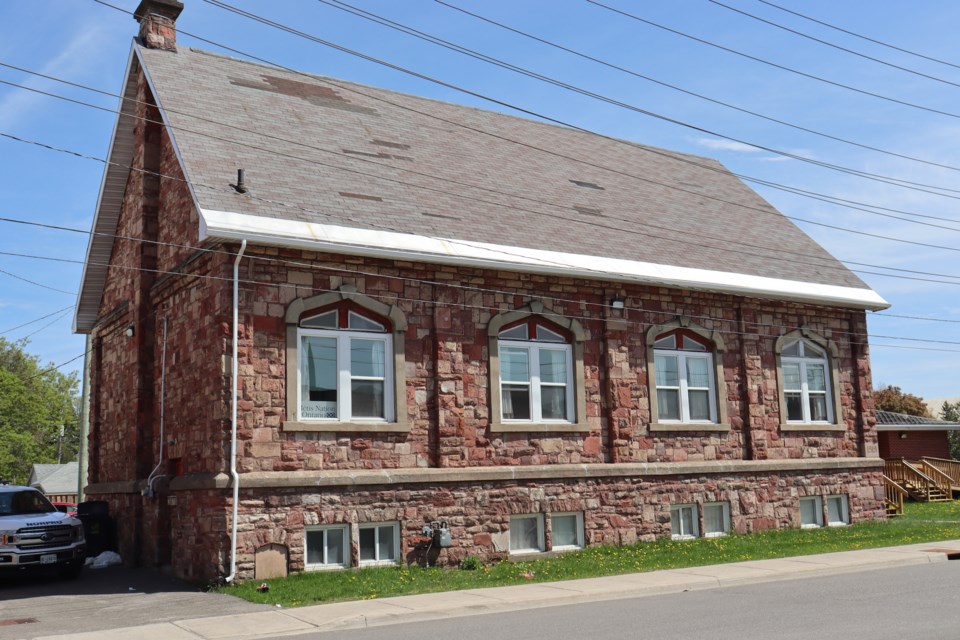The Métis community in Sault Ste. Marie is acknowledging the 172-year anniversary of Canada's commitment to protect the land rights of the Sault Ste. Marie Métis community during Robinson-Huron Treaty negotiations.
On Friday morning, the bell in the steeple of the Sault Métis Centre will ring 172 times to commemorate the anniversary. The Sault Ste. Marie Métis community and the Métis Nation of Ontario are calling on Canada to resolve outstanding land issues in Sault Ste. Marie and across the province.
“We have made significant gains in having our right to self-government recognized and affirmed, but reconciliation is not possible without these issues being addressed. This is a top priority for our community,” said Mitch Case, Métis Nation of Ontario regional councillor. “It is fitting that we are advancing our call for reconciliation on Métis land rights in Sault Ste. Marie the home of the Powley case that remains the only Supreme Court of Canada decision affirming Métis rights protected by section 35 of the Constitution Act.”
A news release from the Métis Nation of Ontario follows:
SAULT STE. MARIE, ONTARIO, October 21, 2022 - Today marks 172 years since the Crown acknowledged and committed to protect the rights to land of the Sault Ste. Marie Métis Community in the Robinson-Huron Treaty negotiations. That solemn commitment remains unfulfilled today, and reconciliation is stalled without it.
This morning, the bell in the steeple of the Sault Métis Centre – the former St. John’s Anglican Church – will ring 172 times, signifying the 172 years that have gone by since the solemn promise was made to the Métis community at Sault Ste. Marie. Church bells have long been used in Métis communities as messengers, to announce births, deaths and important meetings – today, as it has for the past two years – the bell rings as a call to justice.
Canada has long turned a blind eye to these promises but the Sault Ste. Marie Métis community has never forgotten.
“We have made significant gains in having our right to self-government recognized and affirmed, but reconciliation is not possible without these issues being addressed. This is a top priority for our community,” said Mitch Case, Métis Nation of Ontario regional councillor. “It is fitting that we are advancing our call for reconciliation on Métis land rights in Sault Ste. Marie the home of the Powley case that remains the only Supreme Court of Canada decision affirming Métis rights protected by section 35 of the Constitution Act, 1982.”
Unfortunately, broken promises and the exclusion of the Métis from the Robinson treaties – despite the Treaty Commissioner’s express recommendation that they be included – is just one story in what has been the common experience of Métis communities of exclusion and marginalization as Canada asserted itself on the land.
“The Crown’s broken promise to protect Métis in Sault Ste. Marie are not the only issues affecting Métis communities stemming from the lack of a Métis claims policy at the Federal level.” said Margaret Froh, President of the Métis Nation of Ontario. “Métis in Penetanguishene, Sault Ste. Marie, James Bay and Northwestern Ontario all have outstanding issues to be addressed by the Crown, to say nothing of the significant issues for other Métis communities across the Homeland, such as the fraudulent scrip system in Western Canada.”
“This community needs and deserves a process to resolve this issue, and I would argue that Canada needs it also – if Canada intends to restore its honour and reputation and make true the idea of reconciliation, it needs to sit down with this community, listen to our elders and make good on their promise. It’s time,” said Case.
